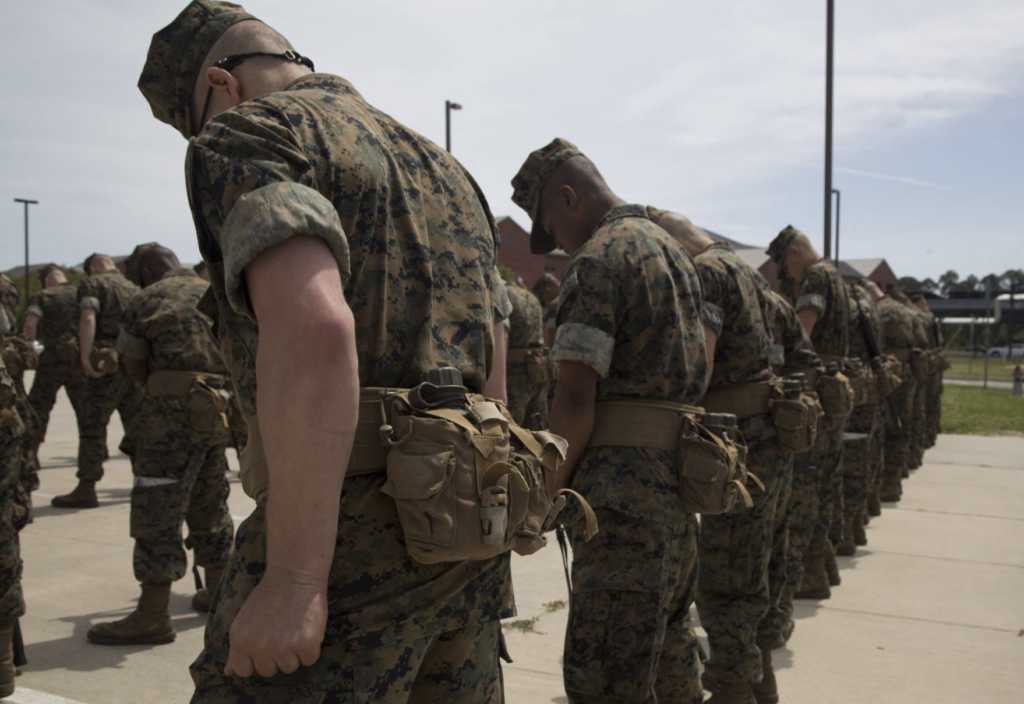It is hard to forget the summer after my first year at the Air Force Academy. Following an arduous freshman year at the base of the Rockies in Colorado Springs, I received the sweet reward of visiting one of my dearest friends from my childhood in Quito, Ecuador, where I grew up as a “missionary kid.”
As we sat at the dinner table, his family asked me what the Academy was like. My instinctual response involved performing air push-ups and spewing just-war quotes. Everyone had a good laugh and pointed out the evidence of my thorough brainwashing. My first year of college had cleverly customized my core.
Prior to joining the Academy, I had examined the differing views on Christian participation in war only one time in a high school English essay. To be honest, the default position of most Christians regarding war was embedded in the conclusion to that essay. Like many, I blindly believed it was not only acceptable for Christians to participate in war, but honorable. I didn’t spend much time considering the other side of the argument.
Throughout high school I developed an interest in service, and I fervently populated military academy application forms with my dreams of grandeur. I used lines like, “I desire to be part of something far bigger than myself.” I wanted to be a world changer, and my dreams neatly fit in the military box.
During my time at college I developed great friends, did well in school and bounced around churches. But, to be honest, despite a desire to walk in holiness and purity with the Lord, my life was a perfect illustration of the lukewarm believer. Something wasn’t sitting right in my spirit, and it was discouraging me from whole-heartedly pursuing the Lord. This spiritual sloppiness continued as I moved to Massachusetts to attend Harvard’s Kennedy School of Government for graduate studies.
Graduate school bombarded me with new experiences and ideas. Although finding a church was a top priority, I always found a reason to put it off. I pressed forward with my studies and placed my hope in preparing for my career, but I could not shake that sense of spiritual disarray and loneliness.
That all changed when I walked into a biblical Greek class offered in Harvard Yard by Dr. Finny Kuruvilla. He informed the students that reading the Bible in Greek is similar to seeing the world in full color instead of black and white. I am colorblind, so this hooked me.
As I endeavored to study the Bible in its original language something surprising happened. I found a church fellowship who strove for complete obedience to God’s Word, and I learned about early Christianity.
The things I read made sense in a stunningly obvious way. The early Christians took the Scriptures literally and did not provide contextual explanations to dismiss difficult or unpopular teachings. They stood for non-resistance and peacemaking. Even the Council of Nicaea, presided over by emperor Constantine, affirmed that Christians had cast aside their military girdles in response to Christ’s call (read the 12th Canon), placed their hope and efforts in His church, and chose to sacrificially serve those afflicted by war and injustice (1 Timothy 2:1-4).
I could not say the same about my own life.
An internal earthquake kept me up at night for months thinking about the implications of Jesus’ summons and the gospel of His kingdom. I had placed my hope in my military career aligning with God’s will, but I had neglected simple truths. After a period of discipleship and fellowship with faithful people, I had no excuses left to ignore the simplicity of Scripture. My sentiment echoed Martin of Tours, an early conscientious objector, “Hitherto I have faithfully served Caesar. Let me now serve Christ.”
I could not continue in military service and take an oath of allegiance to words that contradicted a Nazarene with the eternal perspective.
Applying as a conscientious objector and taking on my educational debt was my only option. My heart pounded in the moments leading up to the official submission of my application; there was no going back. On the one hand, it was agonizing to share my new convictions with many people I love, respect and cherish who dutifully support and serve in the military. But on the other hand, I had an overwhelming confidence and peace surrounding a new-found hope in the story of the Messiah who conquered evil with love.
The high school dreams of grandeur I chased throughout college paled in comparison to living as a citizen of His Kingdom.
Eventually, the Secretary of the Air Force approved my request for separation, and I received an honorable discharge. I wish I could replace the many hours I spent in devotion to government training with prayerful study of Scripture. Since I cannot, I will do everything I can to persuade others to learn from my mistakes and make up for lost time.
I can say with confidence that out of all the kingdoms, states, governments and military strategists I have studied, the empire that Jesus founded upon love is the greatest.
–
Zack Johnson serves as the Director of Operations at Sattler College, a new Christian college located in Boston dedicated to revolutionizing higher education. For more information, visit www.sattlercollege.org.


